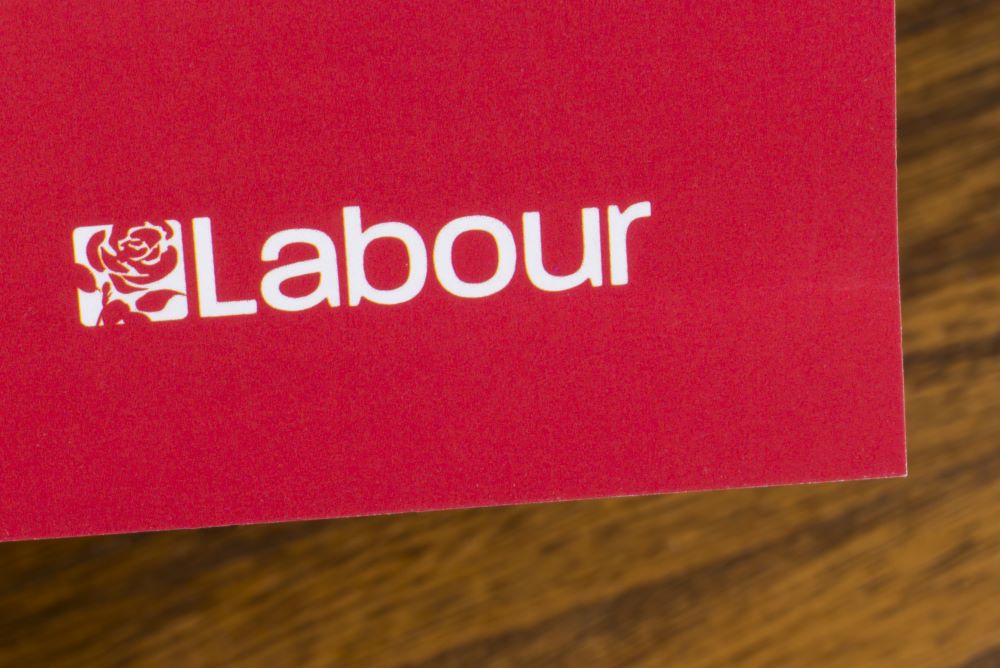
The Labour Party will approach the next general election with policies to stimulate green growth, create an active industrial strategy for Britain, and deliver a better trade deal with the EU, according to its most comprehensive policy document to-date.
Labour has drawn up a provisional but wide-ranging blueprint to shape its general election manifesto.
According to Labour List, an 86-page policy handbook will “inform Labour’s policy proposals ahead of the next general election”, covering six key areas such as “a green and digital future” and “Britain in the world”.
Policies will need to be “debated, amended and agreed” by Labour’s National Policy Forum (NPF) over the summer, but this list of ideas provides detail on the party’s plans.
Green prosperity plan
Labour is pledging to invest £28bn a year into the green economy, with an active industrial strategy, combining public and private-sector investment to create more than a million good jobs.
A new National Wealth Fund will invest alongside the private sector in gigafactories, clean steel plants, renewable-ready ports, green hydrogen and carbon capture and storage, in at least four industrial clusters.
Labour aims to deliver clean electricity by 2030 by increasing onshore and offshore wind capacity, as well as solar capacity and will set ambitious targets for hydrogen and nuclear power.
A strategic, long-term Plan for Green Steel will look to achieve near zero emission steel production by 2035.
Farming and trade
The draft manifesto promises to support sustainable UK farming and animal welfare, including protecting British standards in trade deals.
It will aim to ensure that 50% of all food purchased by the public sector is locally produced or certified to higher environmental production standards.
Labour will examine the best way to prevent environmental harms and human rights abuses in supply chains.
On services, Labour pledges to maintain Britain’s data adequacy status with the EU.
EU ties
The Labour leader, Sir Keir Starmer, will seek to improve the UK’s trade and investment relationship with the EU, while maintaining its new role outside of the single market and customs union, according to the policy handbook.
Labour will seek to reduce trade barriers for UK business and ensure better access for professionals providing services in EU markets, as well as strengthening mutual recognition of professional standards and seeking to unblock participation in the Horizon scheme to “unleash research and development”.
Its trade policy aims to “deliver for all parts of the UK”, boosting exports from, and investment into, all regions.
The policy will aim to provide the mechanisms for trade deals to be negotiated that prioritise jobs, businesses and livelihoods, while also being aware of human rights, workers’ rights, trade union freedom, equality, the environment and consumer standards.
Focus on services
Grace Thompson, public affairs lead at the Institute of Export & International Trade, commented:
“Of additional note is a commitment from Labour that recognises the need to ‘unlock trade in services’. The contribution of trade in services to the economy and the UK’s services reputation in the world is increasingly recognised.
“For example, the business and trade secretary, Kemi Badenoch, is currently in Bern to discuss a trade deal with Switzerland with both countries referred to as ‘services superpowers’.
“Recent UK trade data also suggests that both imports and exports of services increased in March 2023 by £0.1bn and £0.3bn respectively.”
She added that "businesses will therefore be keenly interested to watch the planned development of Labour’s strategy on trade in services going forward. “
Labour will also seek to reform the Trade Remedies Authority, the UK’s safeguard against trade dumping.
Jobs and future of work
A ‘New Deal for Working People’ aims to introduce a range of measures to help improve the world of work and tackle job insecurity, stagnant pay and the growth of in-work poverty.
Deputy Labour leader, Angela Rayner, told the FT that Labour would introduce a “right to switch off” to protect workers from being deluged by emails and calls outside of work hours.
Other work-related changes would include a ban on controversial “zero-hours contracts”, while also outlawing the practice of “fire and rehire”, reports the National News.
Not final
Ahead of their party conference in October, Labour will hold NPF meetings from 21-23 July to form the final party programme.
Thompson explained: “Although Labour are likely to continue seeking feedback and insights from stakeholder groups at various points ahead of the general election, this programme is the basis from which their general election manifesto will be drawn."



